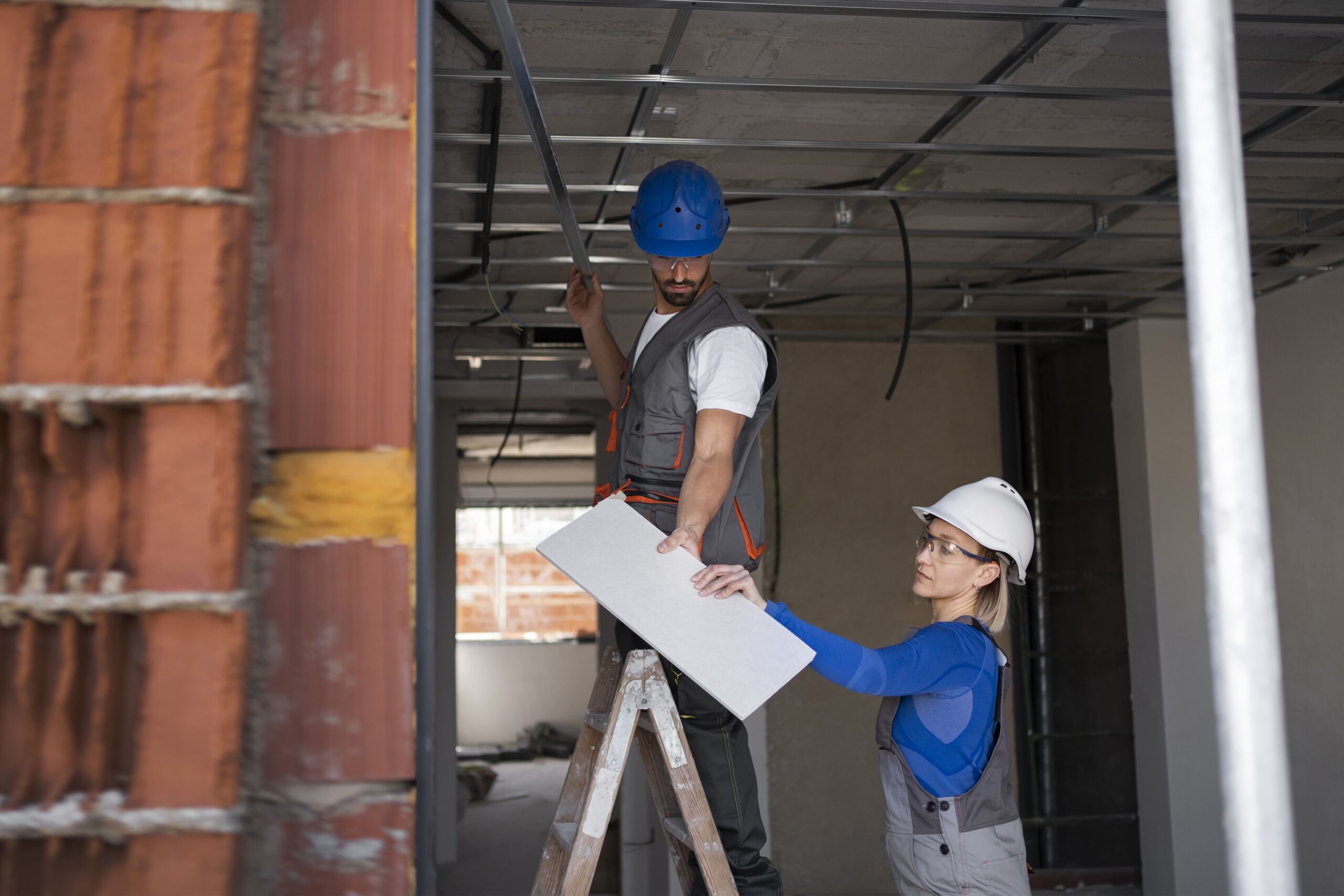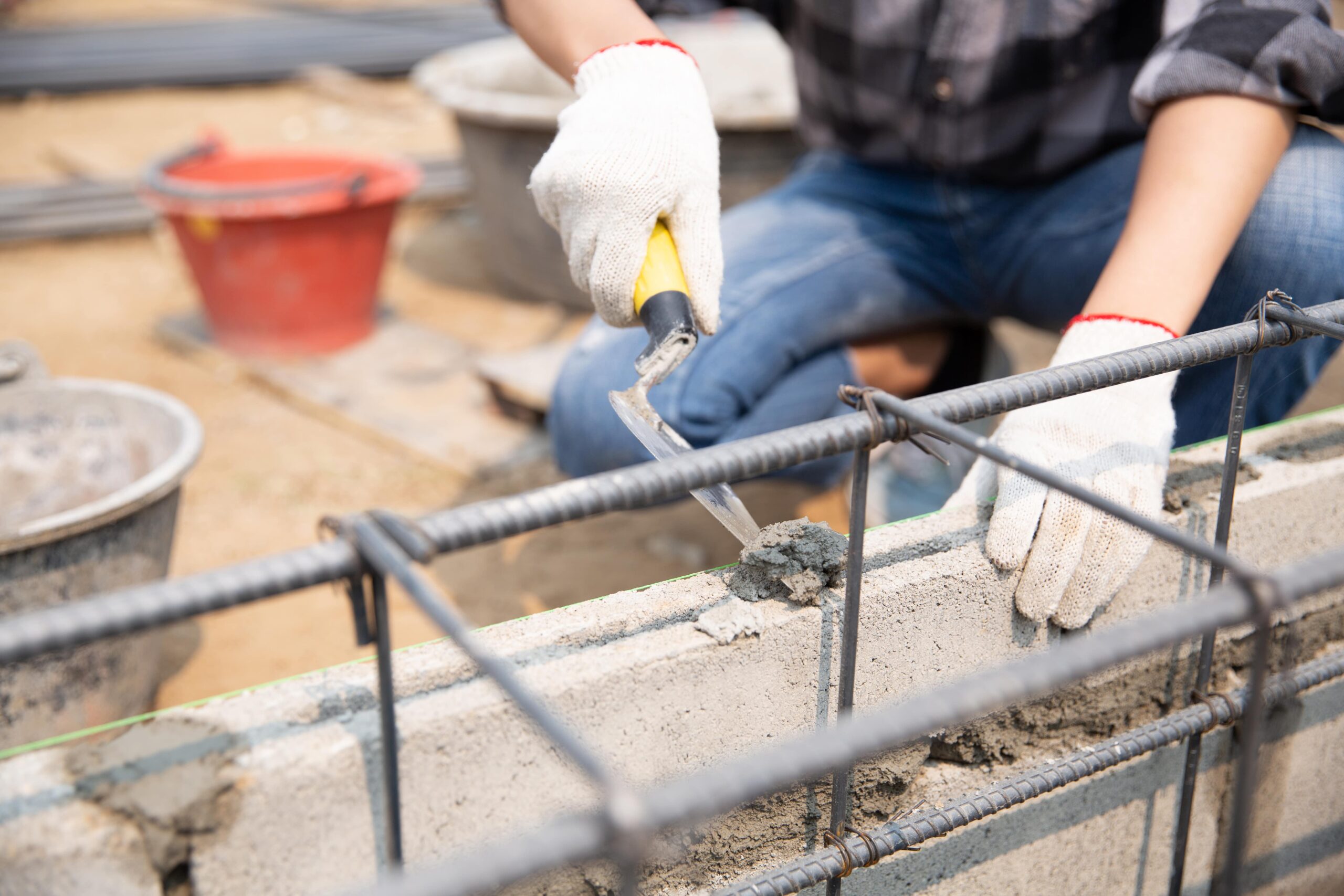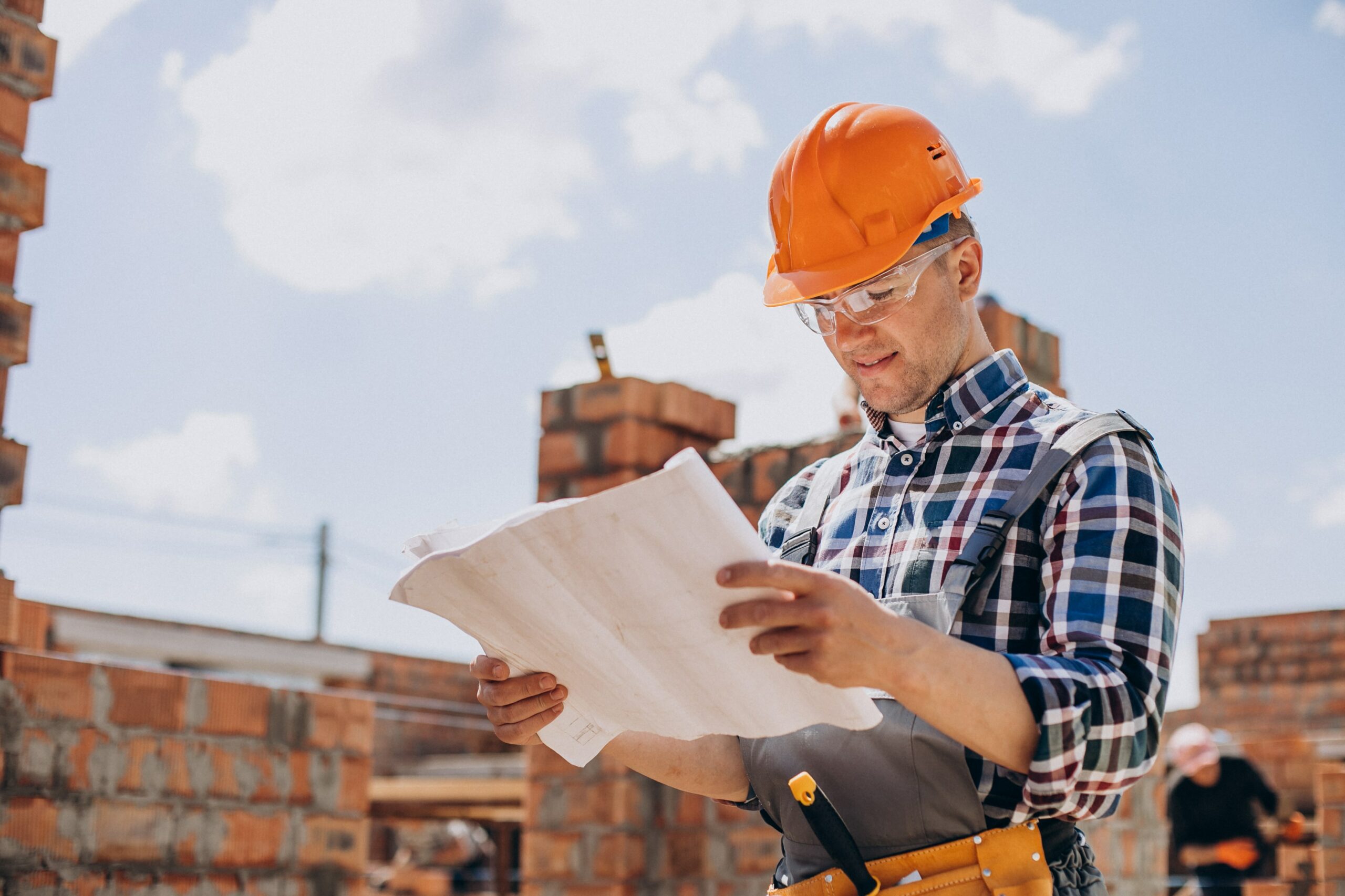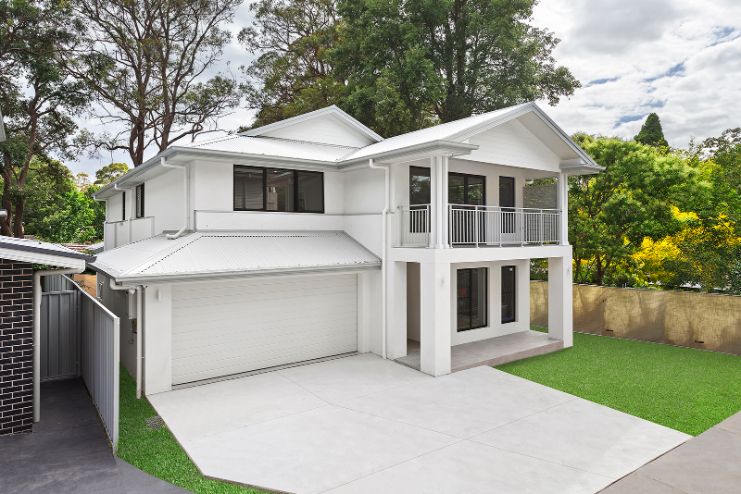
How Long to Build a House in Sydney: A Comprehensive Guide for New Homeowners
When you’re considering building a new home, one of the most pressing questions on your mind is likely to be “How long will it take?” Understanding the timeline for constructing a home, which involves framing and is influenced by many factors, is crucial for planning and budgeting. From obtaining permits and preparing the site to completing interior finishes, each stage plays a significant role in determining the overall duration of construction.
Exploring these key elements will provide you with valuable insights into what to expect during your house-building journey. By gaining an understanding of these contributing factors, you can make informed decisions and effectively manage your expectations throughout the process. New South Homes is here to give you the rundown on how long to build a house of your dreams.
Understanding House Building Timelines
Key Factors
When building a house, the location, budget, and design significantly impact the construction timeline. The complexity of the project, availability of labour, and materials also play crucial roles in determining how long it takes to build your home. Proper planning and clear communication with builders are essential for ensuring timely completion.
For example, if you’re building a house in a remote area, where access to materials and skilled labour is limited, it can prolong the construction process. Similarly, if you have a strict budget or intricate design requirements that may require specialised materials or craftsmanship, this could affect the timeline as well.
Understanding these key factors allows you to anticipate potential delays and plan accordingly to minimise disruptions during the construction phase.
Stages Overview
Building a house involves several stages that contribute to the overall duration of the construction process. From land considerations and design planning to approval procedures, site works, stages of house construction Australia, and interior finishing – each stage has its own timeline and requirements.
For instance, obtaining necessary permits from local authorities can take time depending on your location’s regulations. Site preparation such as excavation work or foundation laying also adds to the timeline before actual construction begins. Interior finishing involving installations like plumbing fixtures and electrical fittings further extends the duration of building your home.
By understanding the typical house construction schedule in Australia and these house construction steps’ overview, you gain realistic expectations about how long it takes to complete each phase of constructing your new home.
Custom Home Process
When opting for a custom-built home instead of purchasing an existing property or pre-designed house, expect a longer timeframe for completion. The custom home process involves extensive planning sessions with architects or designers along with decision-making regarding every aspect of your new home’s design.
For instance: selecting unique architectural features tailored specifically to your preferences requires time-consuming consultations between homeowners and professionals involved in designing their dream living space.
However lengthy this process might be compared to other options available when acquiring housing (such as buying an existing property), remember that building a custom home offers unparalleled benefits by allowing homeowners greater control over creating their ideal living space.
Pre-construction Phases
Land Considerations
Before starting the construction of a house, land considerations play a crucial role. Factors such as soil testing, site preparation, and obtaining necessary permits need to be addressed. The time required for these considerations depends on the condition of the site and any potential challenges that may arise during this phase.
Adequate land preparation is essential for ensuring a solid foundation for your house. If the soil requires extensive work or if there are delays in obtaining permits, it can significantly impact how long it takes to start building your home.
For example:
- In areas with unstable soil conditions, additional time may be needed for soil stabilisation measures.
- Delays in obtaining permits due to regulatory issues or paperwork discrepancies could prolong this phase.
Design Planning
The design planning stage involves working with architects or designers to create detailed blueprints and specifications for your house. The complexity of the design and the number of revisions required can influence how long this stage takes.
It’s important to allocate sufficient time for design planning to ensure all aspects of your future home are properly accounted for. Rushing through this process could lead to oversights that might cause delays during construction or result in costly modifications later on.
For instance:
- A custom-designed home with intricate architectural details will likely require more time in the design planning phase compared to a standard floor plan.
- Revisions requested by you or regulatory authorities can extend the duration needed for finalising the blueprints.
Approval Procedures
Obtaining necessary approvals from local authorities is another critical aspect that impacts how long it takes to build a house. This includes securing permits for construction, adhering to building codes and regulations, and potentially going through a review process.
Properly completing approval procedures is crucial because any oversight or delay at this stage could lead to interruptions once construction begins. The duration varies depending on location-specific regulations and administrative processes.
Consider:
- Different municipalities have varying timelines for permit approval; some may have expedited processes while others might entail longer waiting periods.
- Review boards may request modifications before granting their approval, adding extra time before you can proceed with building.
Construction Stages and Durations
Site Works
The duration can vary based on factors such as the size of your land and any existing structures that need to be cleared. Clearing the land, levelling the ground, and preparing it for construction are all part of this stage. Efficient site works lay a solid foundation for a seamless construction process.
The time taken for site works also depends on any additional landscaping requirements you may have. For instance, if your land requires extensive landscaping or if there are large trees that need to be removed, this can add extra time to the site preparation phase. It’s important to ensure thorough site works as they form the basis for everything that follows in the construction process.
Slab Pouring
Slab pouring involves pouring concrete to create the foundation of your house. The time required for this step depends on various factors including weather conditions, curing time, and the size and complexity of your foundation. Properly curing the slab is crucial as it ensures its strength and durability over time.
If you’re building a larger or more complex home with intricate foundation designs, this could extend the duration needed for slab pouring. Adverse weather conditions might prolong this stage due to potential delays caused by rain or extreme temperatures affecting concrete setting times.
Framework and Roofing
Once your foundation is set, framework installation begins followed by roofing construction. The timeframe for completing these stages in custom home construction varies depending on design complexity, labour availability, weather conditions, and the construction schedule. A more intricate architectural design may require longer hours spent on framework assembly while simpler designs could take less time.
Availability of skilled labour is another factor influencing how long it takes to complete framework installation and roofing work. If there’s a shortage of experienced workers in your area at a given period or if other projects are competing for their attention concurrently with yours’, then completion timelines may be affected.
Mid-construction Milestones
Plumbing and Electricity
This crucial stage demands meticulous planning, expert coordination, and strict adherence to safety standards. The time required for this phase varies based on factors such as the size of your house, complexity of the systems, and the availability of skilled tradespeople. Proper installation is paramount for ensuring functional utilities throughout your home.
Coordination with professionals during plumbing and electrical installation is essential to guarantee that these vital systems are set up correctly. Skilled tradespeople must work diligently to ensure that everything from water supply lines to electrical wiring meets safety regulations. For instance, in a larger or more complex house, installing these systems may take longer due to the increased scope of work involved.
It’s important not to rush through this stage; attention to detail ensures that your home’s plumbing and electrical components function optimally without issues down the line. By taking the necessary time at this point in construction, you can avoid potential problems later on.
Lock Up Stage
The lock-up stage involves securing your house by installing doors, windows, external cladding, and insulation. This critical phase shields the interior from weather elements while allowing other interior work to proceed concurrently. Efficient completion of this stage helps maintain momentum in your project timeline.
During the lock-up stage, it’s imperative that all exterior elements are installed correctly; otherwise, they could compromise both safety and comfort within your home. For example, improperly sealed windows or doors could lead to energy inefficiency or even structural issues over time.
Once completed properly though, the lock-up process creates a secure environment for subsequent construction tasks while safeguarding against external environmental factors like rain or wind damage.
Interior Finishing
The duration of interior finishing in building a house depends on various factors such as the size of the house, the complexity of the finishes, and the availability of skilled tradespeople. This phase involves tasks like installing flooring, painting, cabinetry, tiling, and fitting fixtures. Paying attention to detail during interior finishing enhances both the aesthetics and functionality of homes. For example, in larger houses with intricate finishes, this step may require more time compared to smaller and simpler structures.
Factors Affecting Building Time
Materials and Labor
The availability of materials and labour plays a crucial role in determining how long the construction process will take. Delays in material delivery or a shortage of skilled labour can significantly extend the duration of your project. To mitigate potential delays, it’s essential to plan properly and coordinate with suppliers and contractors. By doing so, you can ensure that materials are delivered on time, and skilled labour is available when needed.
Proper coordination helps in managing unexpected situations effectively. For example, if there’s a delay in receiving certain building materials, having open communication with your contractor allows for adjustments to be made without causing significant setbacks. Therefore, ensuring efficient coordination between all involved parties is key to keeping your construction timeline on track.
Weather Conditions
Adverse weather conditions have the potential to impact construction progress significantly. Heavy rain or extreme temperatures can lead to work being postponed or rescheduled due to safety concerns or operational limitations caused by weather constraints. To manage these delays effectively, considering seasonal variations becomes important.
Incorporating contingency plans into your construction schedule enables you to adapt quickly when faced with adverse weather conditions. For instance, scheduling indoor tasks during periods prone to heavy rainfall reduces the impact of inclement weather on overall progress. By planning ahead for these challenges and making necessary adjustments as needed, you can minimise disruptions caused by unfavourable weather conditions.
Builder Experience
The experience and expertise of the builder you choose play a critical role in determining how efficiently your house will be constructed. An experienced builder is more likely to anticipate potential challenges that could affect timelines while also being proficient at managing various aspects of the construction process effectively.
Overcoming Construction Delays
Efficient Planning
When building a custom home, efficient planning and a construction schedule are crucial to avoid delays. Creating a detailed schedule, coordinating tasks, and setting realistic deadlines are essential steps in the planning process. Effective project management ensures that each stage flows smoothly into the next, minimising delays. By regularly monitoring progress and making necessary adjustments to the plan as needed, you can keep the construction process on track.
Furthermore, efficient planning involves anticipating potential issues that could cause delays and having contingency plans in place to address them promptly. For example, if there’s a possibility of inclement weather during a specific phase of construction, you should have alternative arrangements ready to minimise any impact on the timeline.
Communication with Builders
Maintaining open and effective communication with builders throughout the construction process is vital for avoiding problems that could lead to delays. Clear communication helps address any issues promptly, make necessary decisions without delay, and avoid misunderstandings that can disrupt progress. Regular contact with builders fosters a collaborative relationship and ensures everyone involved is aligned with project goals.
For instance, if you encounter unexpected challenges or changes in your requirements during the construction phase, communicating these developments promptly with your builders allows for quick adjustments without causing significant setbacks.
Prefabricated Materials
Incorporating prefabricated materials into your house construction can significantly expedite certain aspects of the building process while mitigating potential delays. Prefabricated components are manufactured off-site under controlled conditions before being assembled on-site according to your project’s specific needs. This approach reduces overall construction time by streamlining various stages of building.
However, it’s important to note that integrating prefabricated materials requires careful planning and coordination with suppliers from an early stage of your project. Ensuring that all necessary components are available when needed helps maintain momentum throughout the construction timeline without encountering unnecessary interruptions due to material shortages or logistical challenges.
Building in Specific Regions
House Construction in Sydney
The time it takes to build a house can vary due to several factors. Local regulations, availability of labour and materials, as well as the size of the project all play a role. To set realistic expectations, it’s crucial for you to understand these specific considerations.
Consulting with local builders who are familiar with the area can provide valuable insights into the construction process. They can offer guidance on navigating regulatory requirements and help you anticipate any potential delays that may arise during the construction phase. For example, if your project involves sourcing certain materials that are scarce in Sydney at a particular time, experienced local builders will be able to advise you on alternative options or workarounds.
Construction in Perth
Similarly, when considering construction timelines in Perth, it’s important to take into account unique regional aspects such as climate conditions, local regulations, and resource availability. Familiarising yourself with these factors helps homeowners plan accordingly by factoring them into their overall timeline and budget.
Engaging builders experienced in constructing houses in Perth is vital for ensuring compliance with regional requirements. These professionals have an intimate understanding of building codes and zoning laws specific to Perth which are in typical house construction schedules in Australia, that can significantly impact your project timeline. By working closely with knowledgeable local builders from the outset of your project, you’re better positioned to mitigate potential delays caused by unforeseen regulatory hurdles or weather-related challenges.
Land and Home Design Considerations
Initial Steps
When building a house, there are several crucial factors to consider that can significantly impact the time it takes to complete your new home. First, selecting a suitable land package is essential. The location and condition of the land can affect various aspects of construction, such as soil testing and landscaping requirements. Next, finalising the design for your new home is equally important. The layout, size, and style of the house will influence the overall timeline.
Choosing a piece of land with favourable soil conditions can streamline the initial phases of construction. If you select a plot that requires extensive soil testing or remediation, this may add considerable time to your building schedule. When deciding on a location for your new home, factors like accessibility to utilities and local building regulations should be taken into account.
Type of Construction
The type of construction method you opt for plays a significant role in determining how long it will take to build your house. Different methods such as bricklaying or frame construction have varying timelines associated with them. For instance, if you choose traditional bricklaying techniques for building walls versus modern frame construction methods using prefabricated materials, this could impact the duration required for completion.
Your choice in foundation work also affects how long it takes to build your home. Depending on whether you go with slab-on-ground foundations or more complex deep foundations like piers or piles could substantially alter the overall timeline for completing this phase.
Legal and Financial Considerations
Building Permits
Obtaining building permits is crucial when constructing a house. The time required for this process can vary based on the project’s complexity and the efficiency of the approval process. To expedite permit approval, ensure that applications are properly completed and all necessary documentation is provided. This proactive approach helps avoid unnecessary delays in obtaining building permits.
In some cases, securing building permits may take longer if your construction plans involve complex structural designs or zoning regulations. However, by working closely with local authorities and ensuring that all requirements are met from the outset, you can streamline the permit acquisition process.
Contract Clauses
Specific terms included in your construction contract play a pivotal role in determining how long it takes to build your house. For instance, incorporating clauses related to penalties for delays or incentives for early completion can motivate builders to adhere to agreed-upon timelines.
By carefully reviewing and negotiating contract clauses before signing any agreement, both parties’ interests are protected while promoting timely completion of the project. These measures help mitigate potential disputes regarding project timelines and ensure that everyone involved has a clear understanding of their responsibilities.
Financial Planning
Financial planning is essential for managing construction costs effectively while ensuring timely completion of your new home. Adequate financial planning involves securing financing well in advance, budgeting for unexpected expenses that may arise during construction, and actively monitoring expenses throughout the building process.
By proactively addressing financial aspects such as securing adequate funding and maintaining strict budgetary control throughout each phase of construction, you minimise disruptions due to funding issues. This allows for a smoother overall construction experience without compromising on quality or timeline adherence.
Proper financial management also enables you to navigate unforeseen challenges more effectively without jeopardising the progress of your home-building project.
The Path to Homeownership
It’s essential to prioritise your personal happiness throughout the construction process. Maintaining open communication with your builders and contractors is crucial for ensuring that everyone is on the same page. Managing expectations by understanding that challenges may arise can help you navigate any potential stress.
Fostering a positive mindset during the home-building journey can significantly contribute to a smoother experience. Celebrating milestones, such as completing the foundation or reaching the framing stage, allows you to acknowledge progress and stay motivated. By maintaining a positive outlook, you’ll be better equipped to handle any unexpected setbacks that may occur during construction.
Experience
the
Difference
Ready to start your building journey? Chat to our team of experts today and get a FREE personalised quote
Find Out More
Related Posts







